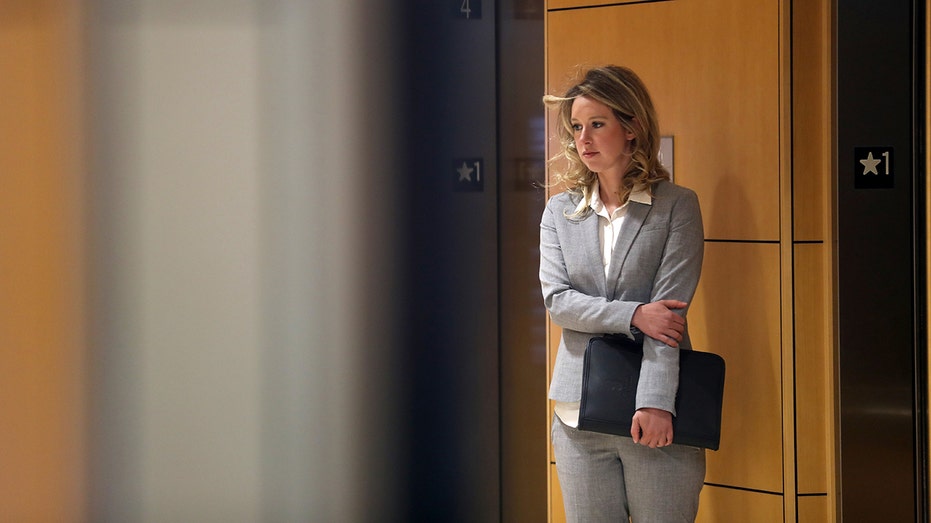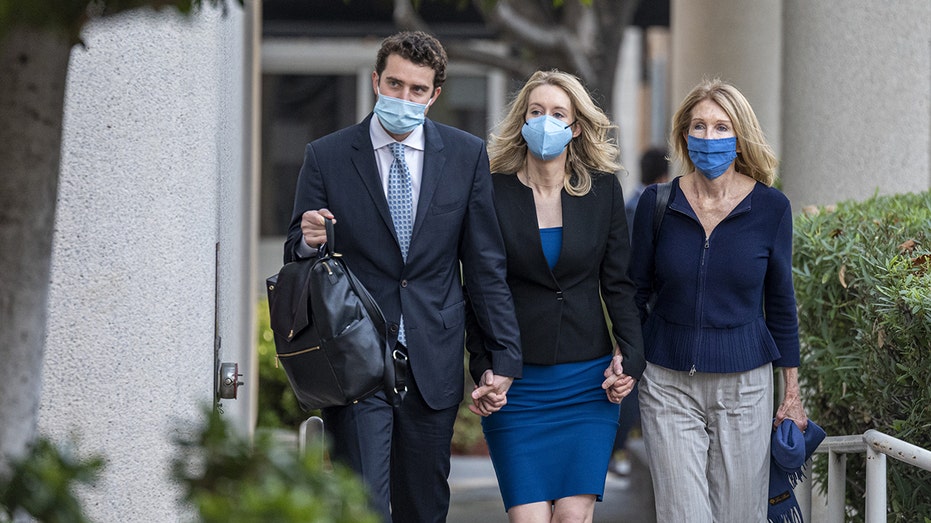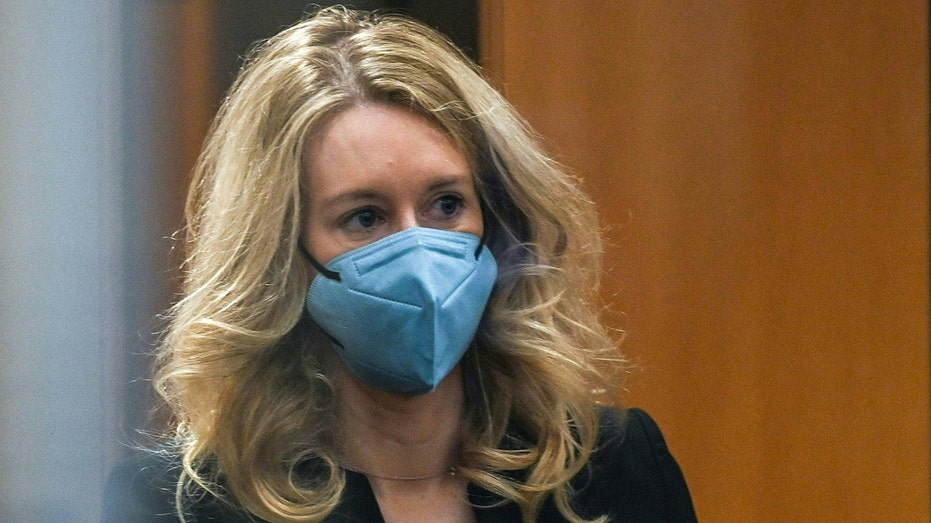The Elizabeth Holmes trial: Founder recounts ‘big idea’ that led to creation of Theranos
Holmes took the stand for a second day
Trial under way for Theranos CEO Elizabeth Holmes
Jury selection begins for Theranos CEO Elizabeth Holmes. FOX Business' Lydia Hu with the latest.
Elizabeth Holmes took jurors into the Theranos Inc. lab Monday during her continued testimony at her criminal-fraud trial, describing ways the startup sought to reduce errors in lab testing and miniaturize traditionally bulky blood-testing machines.
"We thought this was a really big idea," Ms. Holmes said of Theranos’s attempts to remove human error from steps involved in the testing process by automating it.
Ms. Holmes’s narrative is an effort to strike back at allegations from prosecutors that Ms. Holmes knew Theranos’s blood-testing technology was inaccurate and unreliable when she solicited hundreds of millions of dollars from investors and the startup rolled out its testing to patients. She has appeared confident and relaxed on the witness stand.

SAN JOSE, CALIFORNIA - JUNE 28: Former Theranos founder and CEO Elizabeth Holmes arrives at the Robert F. Peckham U.S. Federal Court on June 28, 2019 in San Jose, California. (Photo by Justin Sullivan/Getty Images) (Justin Sullivan/Getty Images / Getty Images)
PROSECUTORS IN ELIZABETH HOLMES TRIAL REVEALED UNTRUTHS, BUT DID THEY PROVE INTENT?
Jurors will be asked to weigh her side of the story against 29 witnesses called by the government, a mix of former employees, investors, business partners, patients and others who spoke about the promise and ultimately the failure of Theranos’s finger-prick blood-testing technology.
Ms. Holmes’s testimony offers her most direct opportunity yet over the monthslong trial to sway jurors who will be voting on whether she is guilty of fraud. Ms. Holmes is accused in an 11-count indictment of intentionally deceiving patients and investors about the capabilities of her blood-testing startup, with each count carrying a maximum sentence of 20 years. Theranos dissolved in 2018, months after the criminal charges were brought.

Elizabeth Holmes, founder of Theranos Inc., center, arrives at federal court in San Jose, California, U.S., on Monday, Nov. 22, 2021. Holmes targeted ultra-wealthy families as early backers of Theranos to avoid the potential pressure from larger inve (David Paul Morris/Bloomberg via Getty Images / Getty Images)
The San Jose courtroom and an overflow room with a video feed filled up quickly Monday morning with journalists, spectators and friends of Ms. Holmes angling for one of the limited seats. An unexplained delay meant Ms. Holmes didn’t take the stand until more than an hour and a half after the scheduled start time.
Defense lawyer Kevin Downey led Ms. Holmes chronologically through Theranos’s early years, asking her to explain problems the company discovered in its first prototype and how the team worked to resolve them.

Former Theranos founder and CEO Elizabeth Holmes goes through security after arriving for court at the Robert F. Peckham Federal Building on November 22, 2021 in San Jose, California. . (Photo by Amy Osborne / AFP) (Photo by AMY OSBORNE/AFP via Getty (Photo by AMY OSBORNE/AFP via Getty Images / Getty Images)
GET FOX BUSINESS ON THE GO BY CLICKING HERE
Mr. Downey at times tried to show jurors that Ms. Holmes received positive reports from lab scientists about the development of the technology, which could bolster her defense that she believed Theranos was on track to creating its proprietary blood-testing technology, even if it didn’t ultimately do all it set out to do.
"I took away that we were hitting the design goals for this system and the system was performing in a way that was excellent in clinical sites," she said in response to reviewing a 2008 presentation given to her by a Theranos scientist.




















